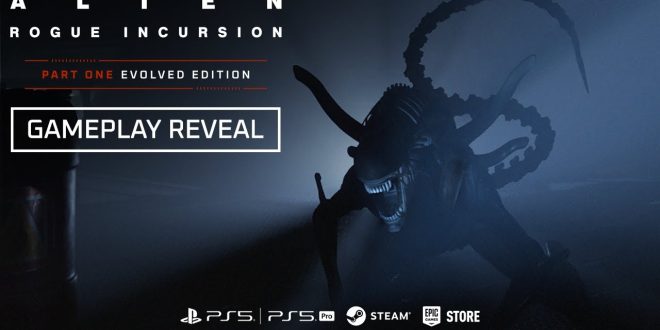There’s a growing unease in the gaming world. It seems like more and more game developers are getting, well, kinda freaked out. The reason? A perceived increase in censorship, particularly targeting games labeled “Not Safe For Work,” or NSFW for short. It’s not just small indie studios either; bigger players are starting to feel the squeeze. This whole situation is sparking some serious debates about where the line should be drawn between artistic expression and platform responsibility, and what the future holds for games that push the envelope. Makes you wonder, doesn’t it?
What’s Happening? Increased Censorship Explained
Defining “NSFW” Games
So, what exactly are we talking about when we say “NSFW” games? It’s a pretty broad category, really. Generally, it includes games with mature themes, sexual content, or graphic violence. Think of it as a spectrum. On one end, you might have games with suggestive themes and mild fan service. On the other, you’re looking at games with explicit sexual acts or extreme gore. It’s not always about just sex either, sometimes it’s the level of violence or how dark the themes are. It really depends on your personal comfort zone, right?
Platform Policies and Enforcement
Now, let’s talk about the gatekeepers: the platforms. Steam, itch.io, the app stores… they all have policies about what kind of content they’ll allow. Steam, for example, has become a bit more lenient over the years, allowing more adult-oriented content, provided it’s properly labeled. But, they still draw the line at illegal content or anything that exploits children. App stores, on the other hand, tend to be stricter, especially Apple’s App Store. Itch.io is known for being more indie-friendly and permissive, but that doesn’t mean anything goes. What’s interesting is how these policies are enforced. Sometimes it feels clear-cut, other times, it’s like a guessing game. And these policies? They shift over time, making it tough for developers to keep up. It’s like trying to hit a moving target!
Impact on Developers
Okay, so what’s the big deal? Well, censorship, or the perceived threat of it, can hit developers hard. Financially, it can mean reduced visibility, demonetization, and ultimately, lower sales. If your game gets flagged or banned, that can be a huge blow, especially for smaller studios that rely on every sale. But, it’s not just about the money. There’s the creative side too. Are developers going to start self-censoring, playing it safe to avoid getting delisted? Will they start avoiding certain themes altogether? That could stifle innovation and lead to a whole lot of bland games. And who wants that? Not me, that’s for sure.
Developer Reactions and Concerns
“Alarmed” is the Key Word
You hear the word “alarmed” thrown around a lot when developers talk about this issue. They’re worried about the chilling effect it could have on the industry. Some say it feels like platforms are cracking down without clear communication, leaving developers in the dark about what’s acceptable and what’s not. Others worry about the precedent it sets, that today it’s adult content, tomorrow it could be something else entirely. It’s a slippery slope, and that’s what has people on edge.
Indie vs. AAA: Different Battles
Here’s the thing: censorship hits indie developers differently than it does AAA studios. A big studio might have the resources to navigate complex platform policies, appeal decisions, or even create their own platform. An indie developer? They might not have those options. For them, getting delisted from a major platform can be a death sentence. Plus, AAA studios often have the marketing muscle to weather a bit of controversy. An indie studio might rely heavily on platform visibility and community support, both of which can vanish if the game is deemed too risqué. It’s a David vs. Goliath situation, really.
Creative Freedom vs. Platform Responsibility
This whole thing boils down to a balancing act. On one hand, you have developers who want the freedom to explore whatever themes they want, to push boundaries, and to create art that reflects the full spectrum of human experience. On the other hand, you have platforms that have a responsibility to their users, to advertisers, and to the broader community. They need to create a safe and welcoming environment, and that sometimes means setting limits. The question is, where do you draw that line? Who gets to decide what’s acceptable and what’s not? And how do you ensure that those decisions are fair and transparent? It’s a tough nut to crack.
The Future of NSFW Games
Potential Workarounds and Solutions
So, what can developers do? Well, some are exploring alternative distribution methods. Think direct sales through their own websites, or smaller, niche platforms that cater specifically to adult content. Others are looking at community-based support, relying on Patreon or crowdfunding to finance their projects. Maybe the answer lies in decentralized platforms or blockchain-based distribution. There are possibilities, though they’re not always easy or straightforward. It’s all about finding new ways to connect with audiences and bypass the traditional gatekeepers.
The Role of the Community
The gaming community also has a big role to play. By supporting developers who are pushing boundaries, by advocating for greater freedom of expression, and by creating spaces for open and honest dialogue, gamers can help shape the future of NSFW games. After all, these games wouldn’t exist without an audience that’s interested in them. So, by speaking up and showing support, gamers can make a real difference.
Looking Ahead: A Call for Transparency
Ultimately, what’s needed is greater transparency from platforms. Developers deserve to know exactly what the rules are and how they’re being enforced. There needs to be a more open dialogue between developers and platform providers, a willingness to listen to concerns and find solutions that work for everyone. Censorship shouldn’t be arbitrary or opaque. It should be a last resort, not a first impulse. Otherwise, we risk stifling creativity and creating a homogenized gaming landscape where everyone’s afraid to take risks. And that, my friends, would be a real shame.
This whole “alarm” about censorship in NSFW games is complex, isn’t it? There’s no easy answer, and it’s something that’s likely to continue evolving. But hopefully, by understanding the different perspectives and by fostering open dialogue, we can find a way to balance creative freedom with platform responsibility. What do you think? Got any favorite NSFW games that you’re worried might disappear? I’d love to hear your thoughts!
 Cloudabouts
Cloudabouts




